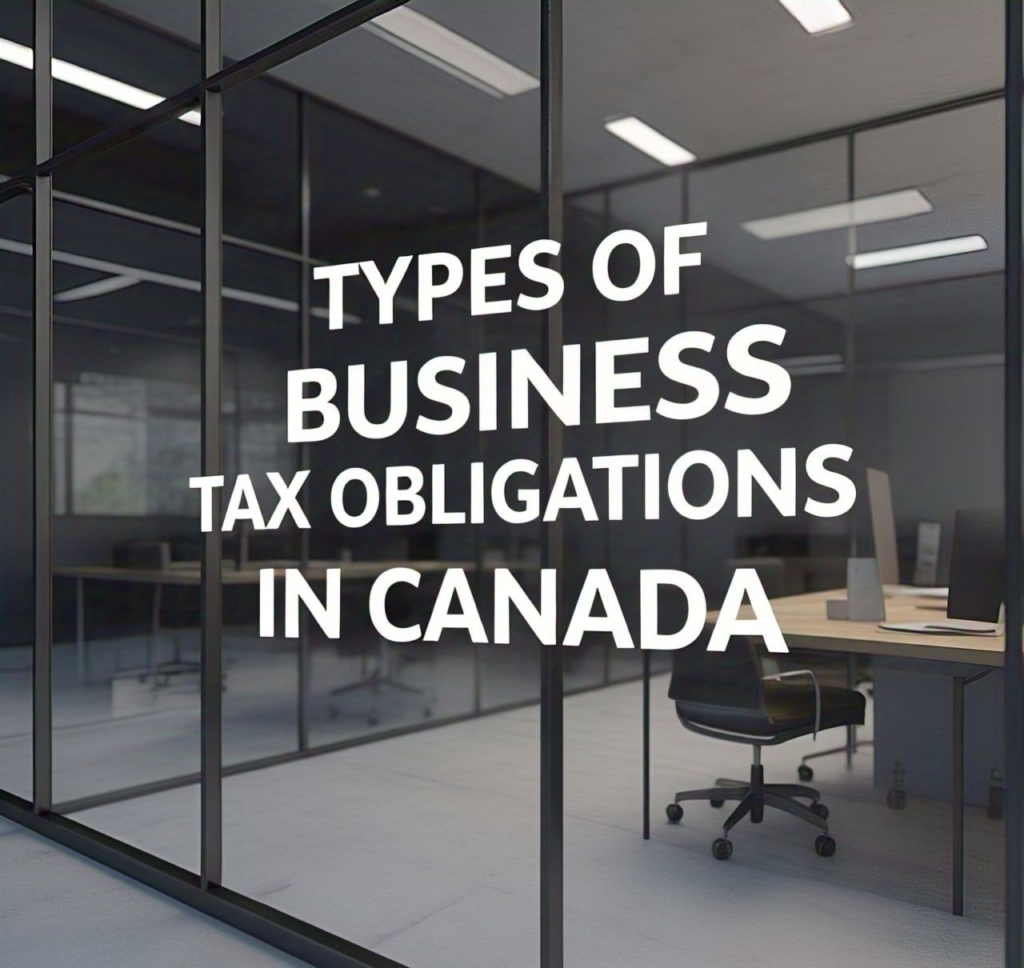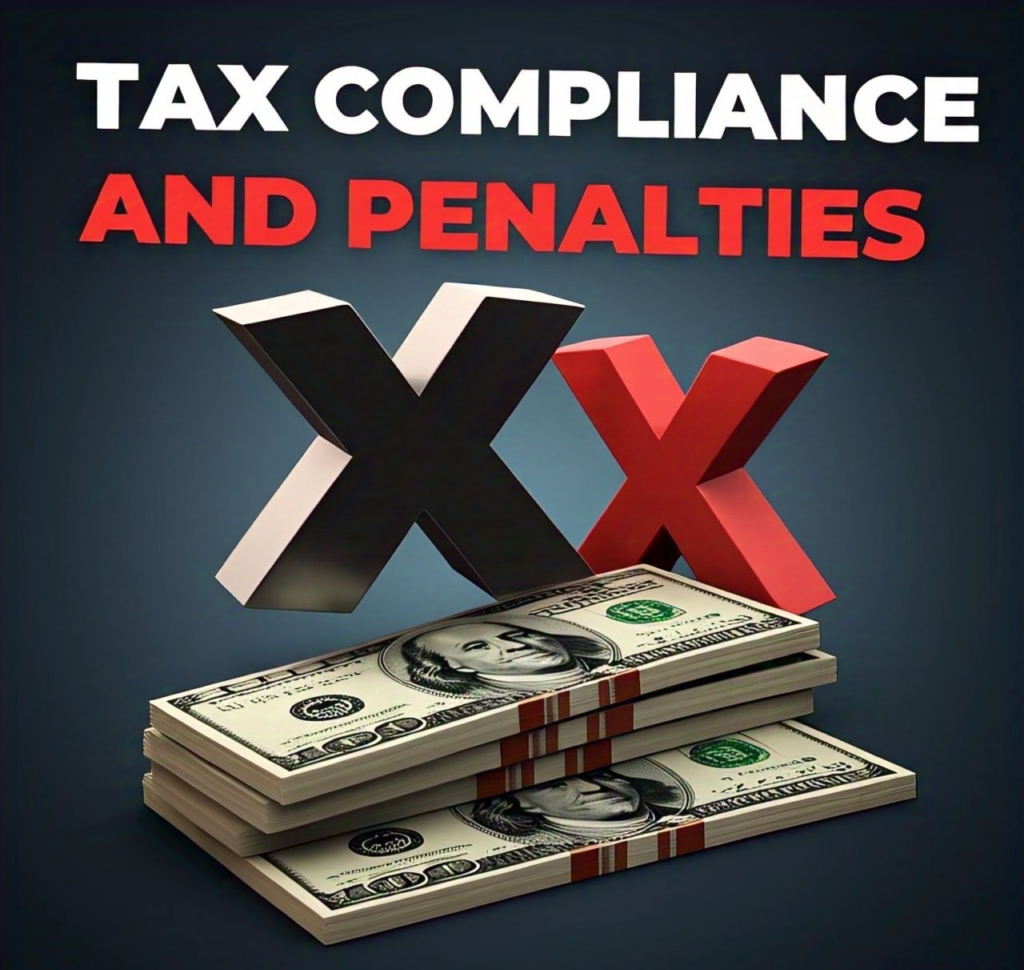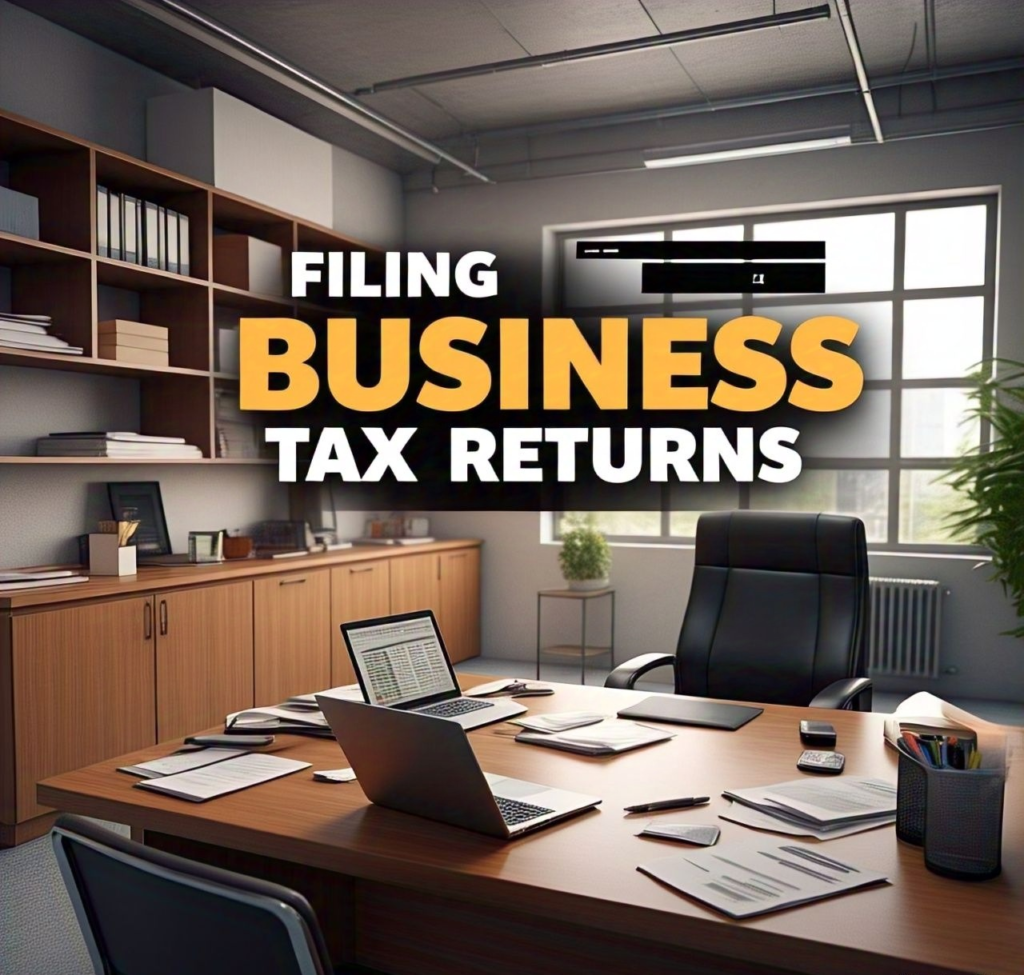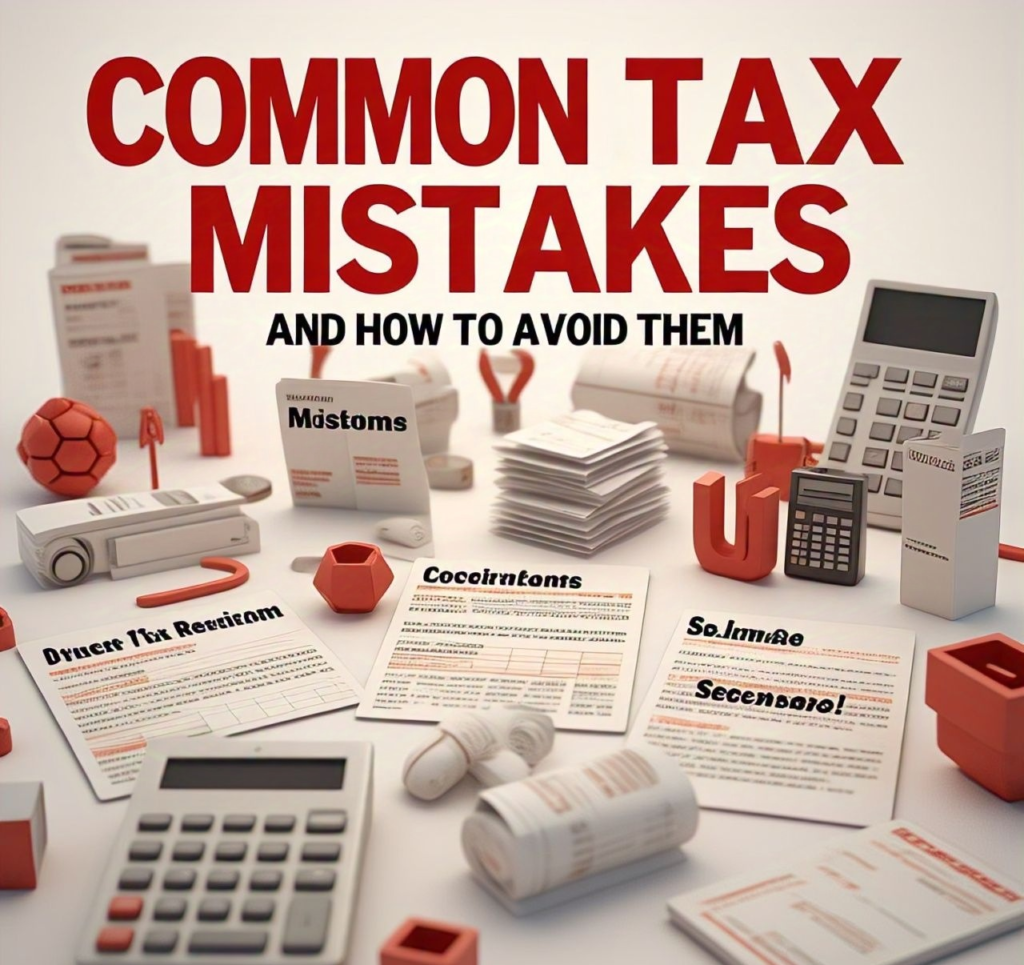CONQUER BUSINESS TAX OBLIGATIONS: A BEGINNER’S BLUEPRINT TO SUCCESS
As a business owner in Canada, navigating the complex world of business tax obligations can be overwhelming. With ever-changing tax laws and regulations, it’s essential to stay informed and compliant to avoid costly penalties and fines. In this comprehensive guide, we’ll provide a beginner’s blueprint to success, covering the essential tax obligations, practical solutions, and expert advice from a Canada tax expert.
UNDERSTANDING BUSINESS TAX OBLIGATIONS IN CANADA
Before diving into the specifics, it’s crucial to understand the basics of business tax obligations in Canada. The Canada Revenue Agency (CRA) requires businesses to file tax returns and pay taxes on their profits. The type of tax return and payment schedule depend on the business structure, such as sole proprietorship, partnership, or corporation.
IMPORTANCE OF UNDERSTANDING TAX OBLIGATIONS FOR BUSINESS SUCCESS

Understanding tax obligations is crucial for business success. Here are some reasons why:
1. Tax Compliance
a. Avoid Penalties and Fines: Failure to comply with tax laws can result in significant penalties and fines, which can be detrimental to a business’s financial health.
b. Maintain Good Standing: Complying with tax obligations helps maintain good standing with the government and avoids any potential legal issues.
2. Financial Management
a. Accurate Financial Reporting: Understanding tax obligations ensures accurate financial reporting, which is essential for making informed business decisions.
b. Cash Flow Management: Complying with tax obligations helps manage cash flow effectively, avoiding any unexpected tax liabilities.
3. Business Growth and Planning
a. Tax Planning Strategies: Understanding tax obligations enables businesses to develop effective tax planning strategies, minimizing tax liabilities and maximizing profits.
b. Informed Decision-Making: Complying with tax obligations provides businesses with accurate financial information, enabling informed decision-making and strategic planning.
4. Risk Management
a. Mitigate Tax Risks: Understanding tax obligations helps mitigate tax risks, avoiding any potential tax disputes or audits.
b. Protect Business Reputation: Complying with tax obligations protects a business’s reputation, maintaining trust and credibility with stakeholders.
5. Access to Funding
a. Improved Creditworthiness: Complying with tax obligations improves a business’s creditworthiness, increasing access to funding and investment opportunities.
b. Government Incentives: Understanding tax obligations enables businesses to take advantage of government incentives and tax credits, providing access to additional funding.
6. Legal Compliance
Failing to meet tax obligations can lead to significant penalties, audits, or even legal actions by authorities like the Canada Revenue Agency (CRA). Staying compliant demonstrates that your business is operating within legal frameworks, which is vital for building trust with stakeholders, customers, and partners.
7. Avoiding Financial Penalties
Tax errors, late filings, or unpaid taxes can result in hefty fines, interest charges, and lost revenue. Understanding deadlines and filing requirements helps you avoid unnecessary financial strain.
8. Strategic Financial Planning
When you understand your tax obligations, you can plan your finances better. Tax knowledge enables you to budget for tax payments, leverage tax deductions, and strategize for long-term growth without unexpected liabilities.
9. Enhancing Business Credibility
Compliance with tax obligations reflects professionalism and credibility. This can improve your reputation with customers, partners, and financial institutions, making it easier to secure funding or business deals.
10. Optimizing Tax Deductions and Credits
Many small business owners overlook tax-saving opportunities like deductions and credits. Understanding how to maximize these benefits can significantly reduce your tax liability, freeing up capital for reinvestment.
TYPES OF BUSINESS TAX OBLIGATIONS IN CANADA

Here are the main types of business tax obligations in Canada:
1. Income Tax
– Corporate Income Tax: Corporations must file a T2 Corporation Income Tax Return and pay taxes on their profits.
– Personal Income Tax: Sole proprietors and partners must report business income on their personal T1 General Income Tax Return.
2. Payroll Taxes
– Employment Insurance (EI): Employers must deduct EI premiums from employee salaries and remit them to the Canada Revenue Agency (CRA).
– Canada Pension Plan (CPP): Employers must deduct CPP contributions from employee salaries and remit them to the CRA.
3. Goods and Services Tax (GST) / Harmonized Sales Tax (HST)
– GST/HST Registration: Businesses with annual revenues over $30,000 must register for a GST/HST account.
– GST/HST Returns: Registered businesses must file GST/HST returns and remit net tax owing.
4. Provincial and Territorial Taxes
– Provincial Sales Tax (PST): Businesses must collect and remit PST in provinces where it applies.
– Provincial Income Tax: Corporations must file provincial income tax returns and pay taxes on their profits.
5. Other Tax Obligations
– Property Taxes: Businesses must pay property taxes on owned or leased properties.
– Fuel Taxes: Businesses must pay fuel taxes on gasoline, diesel, and other fuels.
– Carbon Taxes: Businesses must pay carbon taxes on fossil fuels and other emissions.
6. Information Returns
– T4 Slips: Employers must issue T4 slips to employees and file them with the CRA.
– T5 Slips: Businesses must issue T5 slips to report investment income and file them with the CRA.
7. Other Filings
– GST/HST Election: Businesses can elect to use the Quick Method of accounting for GST/HST.
– Corporate Tax Amendments: Corporations must file amended tax returns to report changes or corrections.
It’s essential for businesses to understand and comply with these tax obligations to avoid penalties, fines, and reputational damage. Consulting a tax professional or accountant can help ensure compliance and optimize tax strategies.
BUSINESS STRUCTURE AND TAX OBLIGATIONS

Here’s a detailed overview of business structures and their corresponding tax obligations in Canada:
Sole Proprietorship
1. Tax Obligations: Sole proprietors report business income on their personal T1 General Income Tax Return.
2. Tax Benefits: Simplified tax reporting, no corporate tax returns required.
3. Tax Drawbacks: Unlimited personal liability, business income taxed at personal tax rates.
Partnership
1. Tax Obligations: Partnerships file a T5013 Partnership Information Return, and partners report their share of business income on their personal T1 General Income Tax Return.
2. Tax Benefits: Shared risk and liability, flexible profit-sharing arrangements.
3. Tax Drawbacks: Complex tax reporting, potential for partner disputes.
Corporation
1. Tax Obligations: Corporations file a T2 Corporation Income Tax Return and pay corporate taxes on profits.
2. Tax Benefits: Limited liability protection, potential for tax deferral.
3. Tax Drawbacks: Complex tax reporting, potential for double taxation.
Cooperative
1. Tax Obligations: Cooperatives file a T2 Corporation Income Tax Return and pay corporate taxes on profits.
2. Tax Benefits: Member-owned and controlled, potential for tax benefits.
3. Tax Drawbacks: Complex tax reporting, potential for restrictions on profit distribution.
Joint Venture
1. Tax Obligations: Joint ventures file a T5013 Partnership Information Return, and participants report their share of business income on their personal T1 General Income Tax Return.
2. Tax Benefits: Shared risk and liability, flexible profit-sharing arrangements.
3. Tax Drawbacks: Complex tax reporting, potential for participant disputes.
Trust
1. Tax Obligations: Trusts file a T3 Trust Income Tax Return and pay taxes on trust income.
2. Tax Benefits: Potential for tax benefits, flexible income distribution.
3. Tax Drawbacks: Complex tax reporting, potential for trust taxation.
When choosing a business structure, consider the tax implications and seek professional advice from a tax expert or accountant.
RISKS OF IGNORING OR MISMANAGING TAX OBLIGATIONS

1. Audits and Investigations
Neglecting tax responsibilities or inaccuracies in filings can trigger audits by the CRA. Audits are time-consuming, stressful, and may result in additional tax payments or penalties.
2. Loss of Business Opportunities
Non-compliance can tarnish your reputation, discouraging investors, partners, or clients from working with you. Many large organizations require proof of tax compliance before entering into contracts.
3. Cash Flow Issues
Failing to budget for taxes can disrupt your cash flow, forcing you to dip into emergency funds or take on debt to meet your obligations.
4. Legal Consequences
Repeated non-compliance can lead to legal actions, license suspensions, or even business closure.
HOW UNDERSTANDING TAX OBLIGATIONS BENEFITS BUSINESS SUCCESS

1. Facilitates Long-Term Growth
A clear understanding of taxes allows businesses to operate efficiently and focus on growth. You can plan for expansions, hire employees, or invest in new ventures without being blindsided by unexpected tax bills.
2. Helps Identify Cost-Saving Opportunities
Knowing how taxes work enables you to claim deductions for eligible expenses like office supplies, travel, employee salaries, and marketing efforts. Tax credits, such as the Scientific Research and Experimental Development (SR&ED) credit, can also significantly boost cash flow.
3. Builds Investor Confidence
Investors and lenders often require businesses to demonstrate sound financial management. Accurate tax records and compliance instill confidence in stakeholders that your business is trustworthy and well-managed.
4. Reduces Stress
When you understand tax rules and deadlines, you’re less likely to face last-minute scrambles or anxiety during tax season. Staying organized and informed promotes peace of mind.
STEPS TO UNDERSTANDING AND MANAGING BUSINESS TAX OBLIGATIONS

1. Know Your Business Structure
Your tax obligations depend on your business structure. For instance:
Sole proprietors report business income on their personal tax return.
Corporations file separate business tax returns and may benefit from the lower small business tax rate in Canada.
2. Register for the Right Accounts
Register with the CRA for a Business Number (BN), GST/HST, payroll deductions, or import/export accounts, depending on your operations.
3. Track Business Expenses
Keep detailed records of all business-related expenses, such as rent, utilities, and transportation. These can be claimed as deductions to lower your taxable income.
4. Understand Filing Deadlines
Stay on top of tax deadlines to avoid penalties. For example:
Corporate tax returns are due six months after the end of the fiscal year.
GST/HST returns vary depending on your reporting frequency (monthly, quarterly, or annually).
5. Leverage Professional Expertise
A tax expert or financial advisor in Ontario can help you navigate the complexities of tax laws, identify opportunities to save, and ensure compliance.
TAX OBLIGATIONS FOR SMALL BUSINESSES IN CANADA
As a small business owner in Canada, you’re required to fulfill the following tax obligations:
1. Register for a Business Number: Obtain a Business Number from the CRA, which is required for tax purposes.
2. File Tax Returns: File annual tax returns, including the T2 Corporation Income Tax Return or the T1 General Income Tax Return for sole proprietors and partnerships.
3. Pay Taxes: Pay taxes on business profits, including income tax, payroll taxes, and Goods and Services Tax (GST) or Harmonized Sales Tax (HST).
4. Maintain Accurate Records: Keep accurate and detailed financial records, including invoices, receipts, and bank statements.
TAX COMPLIANCE AND PENALTIES

Here’s a detailed overview of tax compliance and penalties:
Tax Compliance
1. Registration: Register for a Business Number and applicable tax accounts (e.g., GST/HST, payroll).
2. Filing: File tax returns and information returns on time (e.g., T2, T4, T5).
3. Payment: Pay taxes owing on time (e.g., corporate taxes, GST/HST, payroll taxes).
4. Record-Keeping: Maintain accurate and detailed financial records.
Penalties for Non-Compliance
1. Late Filing Penalties: 5% to 10% of taxes owing, plus interest.
2. Late Payment Penalties: 3% to 6% of taxes owing, plus interest.
3. Gross Negligence Penalties: Up to 50% of taxes owing, plus interest.
4. Repeated Failure to Report Income Penalties: Up to 20% of unreported income.
5. Interest: Charged on outstanding taxes, penalties, and interest.
Other Consequences of Non-Compliance
1. Loss of GST/HST Input Tax Credits: Inability to claim input tax credits for GST/HST paid on business expenses.
2. Loss of Scientific Research and Experimental Development (SR&ED) Tax Credits: Inability to claim SR&ED tax credits for research and development expenses.
3. Business License Revocation: Revocation of business licenses or permits due to non-compliance.
4. Damage to Reputation: Negative impact on business reputation and relationships with customers, suppliers, and partners.
Best Practices for Tax Compliance
1. Seek Professional Advice: Consult a tax expert or accountant to ensure compliance.
2. Implement a Record-Keeping System: Maintain accurate and detailed financial records.
3. Stay Up-to-Date with Tax Changes: Regularly review tax law changes and updates.
4. File and Pay Taxes on Time: Ensure timely filing and payment of taxes to avoid penalties and interest.
Common Tax Compliance Mistakes
1. Inaccurate or Incomplete Records: Failure to maintain accurate and detailed financial records.
2. Late or Missed Filings: Failure to file tax returns or information returns on time.
3. Insufficient Payment: Failure to pay taxes owing on time or in full.
4. Lack of Understanding of Tax Laws: Failure to understand tax laws and regulations.
Tax Compliance Resources
1. Canada Revenue Agency (CRA): The CRA website provides information on tax laws, regulations, and compliance requirements.
2. Tax Professionals: Consult a tax expert or accountant for personalized advice and guidance.
3. Tax Software: Utilize tax software, such as QuickBooks or Xero, to streamline tax compliance and record-keeping.
FILING BUSINESS TAX RETURNS

Here’s a step-by-step guide to filing business tax returns in Canada:
Preparing to File
1. Gather necessary documents: Collect all financial statements, invoices, receipts, and other supporting documents.
2. Determine your business structure: Identify your business structure (sole proprietorship, partnership, corporation) to determine which tax returns to file.
3. Choose a filing method: Decide whether to file electronically or on paper.
Filing Requirements
1. T2 Corporation Income Tax Return: Corporations must file a T2 return annually.
2. T1 General Income Tax Return: Sole proprietors and partners must report business income on their personal T1 return.
3. T4 Slips and T4 Summaries: Employers must file T4 slips and summaries for employees.
4. T5 Slips and T5 Summaries: Businesses must file T5 slips and summaries for investment income.
5. GST/HST Returns: Businesses must file GST/HST returns quarterly or annually.
Filing Deadlines
1. T2 Corporation Income Tax Return: June 30th for corporations with a December 31st year-end.
2. T1 General Income Tax Return: April 30th for sole proprietors and partners.
3. T4 Slips and T4 Summaries: February 28th for employers.
4. T5 Slips and T5 Summaries: February 28th for businesses.
5. GST/HST Returns: Quarterly or annual deadlines vary depending on the filing frequency.
Filing Methods
1. Electronic Filing: File online through the Canada Revenue Agency (CRA) website or certified tax software.
2. Paper Filing: File paper returns by mail or in person at a CRA service counter.
Tips and Reminders
1. File on time: Avoid late-filing penalties and interest.
2. Ensure accuracy: Double-check your returns for errors and completeness.
3. Keep records: Maintain supporting documents for at least six years.
4. Seek professional help: Consult a tax professional or accountant if needed.
By following these steps and tips, you can ensure accurate and timely filing of your business tax returns in Canada.
PRACTICAL SOLUTIONS FOR BUSINESS TAX OBLIGATIONS
To ensure compliance and minimize tax liabilities, consider the following practical solutions:
1. Consult a Canada Tax Expert: Seek advice from a qualified tax professional, such as a financial advisor in Ontario, to ensure compliance and optimize tax strategies.
2. Implement a Record-Keeping System: Utilize cloud-based accounting software, such as QuickBooks or Xero, to maintain accurate and organized financial records.
3. Take Advantage of Tax Credits: Claim tax credits, such as the Small Business Deduction or the Scientific Research and Experimental Development (SR&ED) tax credit, to reduce tax liabilities.
4. Stay Up-to-Date with Tax Changes: Regularly review tax law changes and updates to ensure compliance and optimize tax strategies.
COMMON TAX MISTAKES AND HOW TO AVOID THEM

Filing taxes is a crucial part of running a business, but it can also be a source of stress and confusion, especially for small business owners and beginners. Mistakes in tax preparation can lead to audits, penalties, and lost money—issues that no business can afford. The good news? Most tax errors are preventable with the right knowledge and strategies.
In this guide, we’ll explore the most common tax mistakes businesses make and how to avoid them, helping you stay compliant and optimize your financial success.
1. Failing to Keep Accurate Records
The Mistake: Poor record-keeping is one of the most common tax errors. Many business owners either neglect to track expenses or lose important receipts and invoices, making it difficult to file accurate returns or claim deductions.
Why It’s a Problem: Without proper documentation, you risk missing out on deductions or triggering a CRA audit.
How to Avoid It:
– Use Accounting Software: Tools like QuickBooks or Xero can automate record-keeping and organize financial data.
– Digitize Receipts: Scan and save receipts to avoid losing physical copies.
– Track Expenses Regularly: Set aside time weekly to update your financial records instead of waiting until tax season.
2. Missing Tax Deadlines
The Mistake: Filing late or forgetting to pay taxes on time is a common issue, especially for new business owners unfamiliar with CRA deadlines.
Why It’s a Problem: Missing deadlines can result in penalties, interest charges, and a damaged relationship with the CRA.
How to Avoid It:
– Mark Your Calendar: Create a tax calendar with reminders for key deadlines, such as GST/HST returns, payroll remittances, and corporate tax filings.
– Subscribe to CRA Alerts: Sign up for CRA email reminders for upcoming deadlines.
– Hire a Tax Expert: A Canada tax expert or financial advisor in Ontario can help ensure all deadlines are met.
3. Mixing Personal and Business Finances
The Mistake: Using the same bank account or credit card for both personal and business expenses makes it challenging to separate taxable business expenses.
Why It’s a Problem: Mixing finances complicates bookkeeping and may lead to missed deductions or red flags during audits.
How to Avoid It:
– Open a Separate Business Account: Maintain distinct accounts for all business transactions.
– Use a Business Credit Card: This helps track expenses more efficiently and builds your business credit.
4. Overlooking Tax Deductions
The Mistake: Many small business owners fail to claim all eligible deductions, either because they’re unaware of them or lack proper documentation.
Why It’s a Problem: Missing deductions means paying more taxes than necessary.
How to Avoid It:
– Educate Yourself on Deductions: Common deductions include home office expenses, vehicle costs, advertising, and professional fees.
– Work with a Financial Advisor: A tax professional can identify deductions specific to your business.
– Keep Detailed Records: Maintain receipts and invoices for all deductible expenses.
5. Misreporting Income
The Mistake: Failing to report all income, including cash transactions, is a serious error that can result in penalties or audits.
Why It’s a Problem: The CRA has strict rules for income reporting, and discrepancies can lead to investigations or fines.
How to Avoid It:
– Report All Income Sources: This includes income from side gigs or freelance work.
– Reconcile Bank Statements: Regularly match your financial records with bank statements to ensure accuracy.
– Use Invoicing Software: Digital tools can track income automatically and minimize errors.
6. Incorrect GST/HST Filings
The Mistake: Many businesses either fail to register for GST/HST when required or make errors in their filings.
Why It’s a Problem: Not charging or remitting GST/HST properly can lead to penalties and backdated payments.
How to Avoid It:
– Know Your Threshold: Register for GST/HST if your annual revenue exceeds $30,000.
– Review CRA Guidelines: Understand what qualifies as taxable goods and services.
– Hire a Tax Expert: A financial advisor in Ontario can guide you through GST/HST compliance.
7. Neglecting Payroll Taxes
The Mistake: Business owners often forget to remit payroll taxes for employees or miscalculate deductions like CPP and EI.
Why It’s a Problem: The CRA imposes steep penalties for incorrect payroll remittances or late payments.
How to Avoid It:
– Use Payroll Software: Tools like Wage-point or QuickBooks Payroll can automate calculations and remittances.
– Stay Informed: Keep up-to-date with CRA payroll guidelines and changes to contribution rates.
8. DIY Taxes Without Proper Knowledge
The Mistake: Attempting to handle business taxes without adequate expertise can lead to errors, missed deductions, and non-compliance.
Why It’s a Problem: Business taxes are complex, and even minor mistakes can have major consequences.
How to Avoid It:
– Hire a Tax Professional: Work with a Canada tax expert or financial advisor in Ontario to ensure accuracy.
– Invest in Education: Attend tax workshops or courses to better understand your obligations.
9. Ignoring Tax Law Changes
The Mistake: Tax laws frequently change, and failing to stay informed can result in non-compliance or missed opportunities for savings.
Why It’s a Problem: Outdated knowledge can lead to errors in filings or missed deductions.
How to Avoid It:
– Subscribe to Updates: Follow the CRA website for news on tax law changes.
– Consult Experts Regularly: A financial advisor can keep you informed about updates relevant to your business.
10. Filing Without Professional Help for Complex Returns
The Mistake: Business owners with complex tax situations often try to file returns themselves, risking errors.
Why It’s a Problem: Complex returns require in-depth knowledge that only professionals can provide.
How to Avoid It:
– Hire a Financial Advisor: For corporations, multiple income streams, or international transactions, consult a tax expert.
– Audit-Proof Your Records: Professionals can help you prepare for potential CRA audits by ensuring compliance.
FREQUENTLY ASKED QUESTIONS
General Tax Questions
- What is a Business Number, and do I need one?
A: A Business Number is a unique identifier assigned to your business by the Canada Revenue Agency (CRA). Yes, you need a Business Number to register for taxes, open a business bank account, and access other government services.
- What taxes do I need to pay as a business owner?
A: As a business owner, you need to pay various taxes, including income tax, Goods and Services Tax (GST), Harmonized Sales Tax (HST), Provincial Sales Tax (PST), and payroll taxes.
Tax Registration and Filing
- How do I register for taxes as a business owner?
A: You can register for taxes online through the CRA website, by phone, or by mail. You will need to provide your Business Number, business name, and other relevant information.
- What tax returns do I need to file as a business owner?
A: As a business owner, you need to file various tax returns, including the T2 Corporation Income Tax Return, T1 General Income Tax Return, GST/HST Return, and T4 Slips and Summaries.
Tax Obligations and Compliance
- What are my tax obligations as a business owner?
A: As a business owner, your tax obligations include filing tax returns, paying taxes on time, maintaining accurate records, and complying with tax laws and regulations.
- What happens if I don’t comply with tax laws and regulations?
A: If you don’t comply with tax laws and regulations, you may face penalties, fines, and interest on outstanding taxes. In severe cases, you may also face prosecution or loss of business licenses.
Tax Planning and Optimization
- How can I minimize my tax liability as a business owner?
A: You can minimize your tax liability by taking advantage of tax deductions and credits, optimizing your business structure, and seeking professional tax advice.
- What tax credits and deductions are available to business owners?
A: Various tax credits and deductions are available to business owners, including the Small Business Deduction, Scientific Research and Experimental Development (SR&ED) tax credit, and capital cost allowance.
Additional Resources
- Where can I find more information on business taxes in Canada?
A: You can find more information on business taxes in Canada on the CRA website, through tax professionals and accountants, and by attending tax seminars and workshops.
CONCLUSION
Navigating business tax obligations in Canada can be complex and overwhelming, but with the right guidance and practical solutions, you can ensure compliance and minimize tax liabilities. By consulting a Canada tax expert, implementing a record-keeping system, and staying up-to-date with tax changes, you’ll be well on your way to conquering business tax obligations.
KEY TAKEAWAYS
1. Understand Tax Obligations: Familiarize yourself with the various tax obligations, including income tax, GST/HST, PST, and payroll taxes.
2. Register for Taxes: Register for a Business Number, GST/HST account, and other tax accounts as required.
3. File Tax Returns: File tax returns on time, including the T2 Corporation Income Tax Return, T1 General Income Tax Return, and GST/HST Return.
4. Maintain Accurate Records: Maintain accurate and detailed financial records to support tax claims and defend against audits.
5. Seek Professional Advice: Consult a tax professional or accountant to ensure compliance and optimize tax strategies.
FINAL THOUGHTS
Conquering business tax obligations requires a proactive and informed approach. By following the blueprint outlined in this guide, business owners can navigate the complex world of business taxes with confidence and achieve success.
Next Steps
1. Review and Update Tax Strategies: Regularly review and update tax strategies to ensure compliance and optimization.
2. Stay Informed about Tax Laws and Regulations: Stay informed about tax law changes and updates to ensure compliance and optimization.
3. Seek Ongoing Professional Advice: Consult with a tax professional or accountant on an ongoing basis to ensure compliance and optimization.
By following these next steps, business owners can continue to conquer business tax obligations and achieve long-term success.
ABOUT
Shanel John is a dedicated Certified Public Accountant (CPA) at G.L.H. Accounting, specializing in Income Tax with 10 years of experience. Based in Brampton, Ontario, Canada, Shanel offers expertise in tax preparation, financial accounting, and advisory services. A certified QBO Pro Advisor, Shanel’s decade-long experience and knowledge make her a trusted figure in the accounting field.
ADDITIONAL RESOURCES
Here are some additional resources links on the topic “Conquer Business Tax Obligations: A Beginner’s Blueprint to Success”:
Government Resources
1. IRS Small Business and Self-Employed Tax Center: https://www.irs.gov/newsroom/taxpayer-advocacy-panel-welcomes-8-new-members-dedicated-to-improving-irs-taxpayer-services-seeks-civic-minded-volunteers-to-apply-for-next-years-group
2. Canada Revenue Agency (CRA) Business Tax Page: https://www.canada.ca/en/services/taxes/resources-for-small-and-medium-businesses.html
3. Tax-Free Savings Account: https://www.canada.ca/en/revenue-agency/services/tax/registered-plans-administrators/tax-free-savings-account-tfsa/tax-free-savings-account-tfsa-2.html
4. Goods and Services Tax (GST) / Harmonized Sales Tax (HST):
https://www.canada.ca/en/revenue-agency/services/tax/businesses/topics/gst-hst-businesses.html

